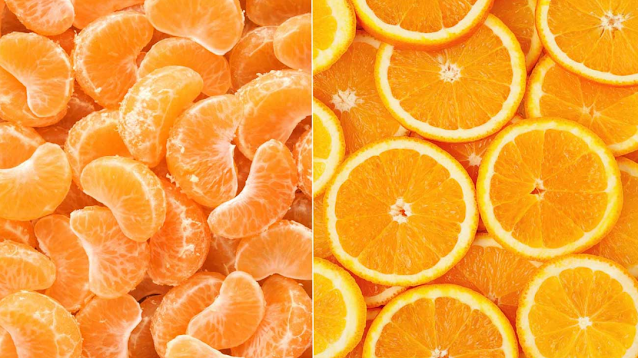Healthy High-Carb Foods You Should Know
Yes, processed foods that are high in sugar and refined grains often don't contain enough essential vitamins and minerals. However, many meals that are rich in fiber and nutrients can really benefit you.
Carbohydrates have earned a bad reputation over the years. They are often associated with many health problems, including type 2 diabetes, weight gain, and other issues.
Below are Carb Foods That Are Highly Incredibly Good for Healthy Living:
Oats
Oats are a great source of fiber and protein, among other important elements. Additionally, studies have demonstrated that consuming oats decreases cholesterol and blood sugar.
Whole grains like oats are very healthful and a great source of vitamins, minerals, and antioxidants.
Seventy percent of oats are carbs. Eight grams of fiber and 54 grams of carbohydrates make up a serving of one cup (81 grams). They are very high in oat beta-glucan, a specific kind of fiber.
Bananas
Potassium, a mineral that is important for controlling blood pressure, is abundant in bananas. Pectin and resistant starch, both of which promote digestive health, are also found in less ripe bananas.
A large banana (136 grams) contains about 31 grams of carbohydrates, either in the form of sugar or starch.
Bananas are not only rich in potassium and vitamins B6 and C but also contain several beneficial phytochemicals. The high potassium content of bananas has been linked to lowering blood pressure and improving heart health.
Green, unripe bananas contain more starch. As the bananas ripen, this starch converts into natural sugar and turns yellow. So if you eat your bananas before they are fully ripe, you will generally have more starch and less sugar.
Less ripe and unripe bananas also contain a lot of resistant starch and pectin, which promote healthy digestion and serve as food for the good bacteria in your stomach.
Sweet potatoes
Sweet potatoes are a great source of antioxidants, vitamins, and minerals, including vitamin A.
About 20.7 grams of carbohydrates, which are made up of starch, sugar, and fiber, are found in half a cup (100 grams) of mashed, cooked sweet potatoes with the skin on.
Additionally, they are a rich source of antioxidants, which are substances that work to counteract dangerous free radicals in your cells to shield you from long-term illness.
Oranges
Oranges are rich in fiber. They also contain a lot of vitamin C and other beneficial plant substances. Eating oranges can improve heart health and promote iron absorption, which can prevent anemia.
They consist mainly of water and contain about 15.5 grams of carbohydrates per 100-gram serving. Oranges are also a high-fiber food.
Oranges are particularly rich in vitamin C, potassium, and several B vitamins. They also contain citric acid, various powerful phytochemicals, and antioxidants.
Oranges can promote heart health and prevent kidney stones. They can also promote the absorption of iron from other meals, which can help prevent iron deficiency anemia.
Grapefruit
Grapefruit contains several vitamins, minerals, and antioxidants. It can offer several health benefits.
It contains about 8% carbohydrates and is rich in vitamins, minerals, and antioxidants.
Certain studies on humans and animals have shown that grapefruit can promote heart health and improve blood sugar control.
Apples
Apples contain large amounts of vitamin C, antioxidants, and phytochemicals. Eating apples can improve blood sugar control, and reduce the risk of heart disease and possibly even certain cancers.
Apples are known for their sweet, tangy flavor and crunchy texture.
They come in a variety of colors, shapes, and flavors, and each contains about 14-16 grams of carbohydrates per 100 grams. Apples contain several vitamins and minerals, but usually only in small amounts.
However, they are high in vitamin C, antioxidants, and fiber. Apples may also provide some health benefits, including improved blood sugar control and cardiovascular health.
Chickpeas
Chickpeas are an excellent source of vegetable protein and contain a variety of vitamins and minerals. Chickpea consumption has been linked to improved heart and digestive health as well as possible cancer prevention.
Chickpeas, often known as garbanzo beans, are a legume. Cooked chickpeas contain 27.4 grams of carbohydrates per 100-gram serving and about 8 grams of fiber.
They also contain a lot of vegetable protein. Chickpeas contain a variety of vitamins and minerals, including iron, phosphorus, and B vitamins.
Buckwheat
Buckwheat is extremely healthy and contains more antioxidants and minerals than most grains. Buckwheat is not related to wheat and does not contain gluten.
Eating buckwheat can improve heart health and blood sugar control. Buckwheat is considered a pseudocereal. Despite its name, buckwheat is not related to wheat and does not contain gluten.
Raw buckwheat contains 75 grams of carbohydrates, while cooked buckwheat groats contain about 19.9 grams of carbohydrates per 100-gram meal.
Buckwheat is extremely healthy and provides both protein and fiber. It contains more nutrients and antioxidants than many other grains.
Conclusion:
It is a misconception that all carbohydrates are bad. Many of the healthiest foods contain a lot of carbohydrates.
However, you should not eat too many carbohydrates on a low-carb diet. Also, overconsumption of refined carbohydrates such as white bread and spaghetti can be harmful.
However, you can eat these nutritious, delicious carbohydrates as part of a healthy, wholesome diet.







